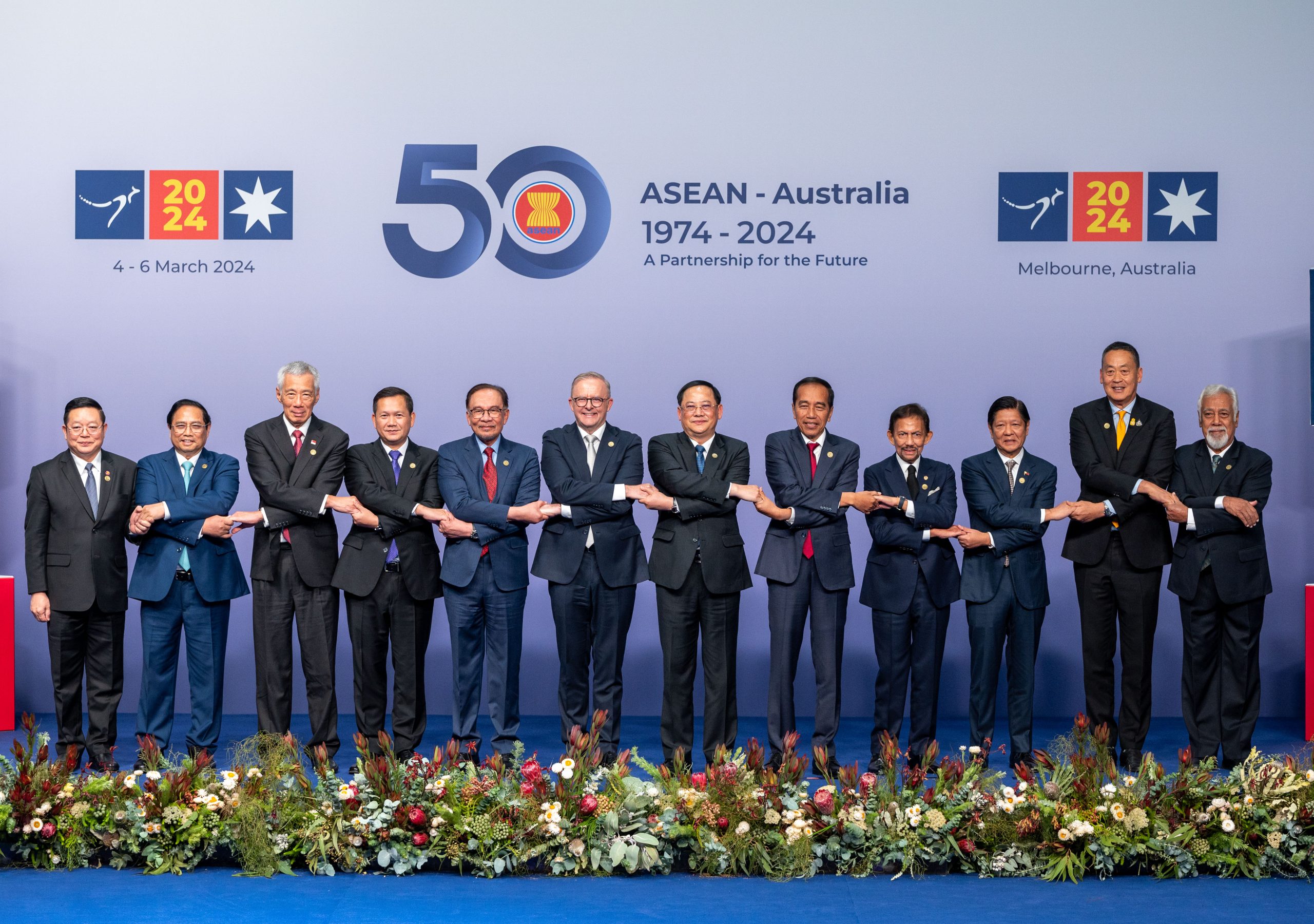Every year it’s the same, except for one thing: there’s less money available and getting approval to spend your already-allocated budget is even harder.
The expectation of you hasn’t changed – you’re required to organise an event for your employer and it needs to be just as good, if not better than last time. But there’s that money issue – your funds are really tight.
Your budget for the event must be carefully allocated and until now, you’ve always managed it in-house. You have a choice: continue as you always have done and manage the event with your limited internal resources – or take a different tack.
You decide to speak to an external event specialist. And then they ask the million-dollar question: “So, what’s your budget?”

Put a dollar sign
“Creating an event without a budget is like buying an ashtray for a motorbike: it just won’t work,” says Peter Kinnane, managing director of Off-Site Connections Event Management. “In most cases when running events in China and throughout Asia, the last piece of information you’ll get from the client is how much money they’re prepared to spend.
“A simple way of finding out what type of budget they may have is to fire off some targeted questions like: ‘What did you do last year? What venue did you use? What was the entertainment? Was it a sit-down or stand-up event? Did you have any guest speakers?’ If we get some of these answers, then that should give us a better idea of what budget they spent and a better understanding of how their event was structured.”
Event specialists understand how crucial a realistic budget is. Without it, they simply won’t be interested in working with you. They also know how to make funds stretch. Until now, your event has always been a cost to the company but by procuring sponsorship, an event specialist can add a revenue stream. Their fee will be a percentage of the sponsorship revenue they raise.
The budget is a complex set of financial equations that, when established, sets the framework for the success or otherwise of your event. It is the dynamic working document that allows you to create a financially successful event and, in its simplest form, controls expenditure and any possible revenue. Without it, potential pitfalls might not be clearly identified and the spectre of financial failure looms large.
Sanjay Seth, vice-president of Singapore-based The Event Company, describes an experience when his client had little or no appreciation of budget and how it affected the choice of destination. “It’s not rocket science that the same event being executed in Bangkok as opposed to Tokyo or Melbourne or even New Delhi would give you four very different budgets,” he says. “While you could likely maximise your event spend in Bangkok, you would have to be prepared to pay 50 to 80 percent more for accommodation and event space in Tokyo, 30 percent more on the rental of AV equipment in New Delhi and 60 percent more for labour in Melbourne.”
He adds that an event specialist should lead you through the various elements of the budget and prepare a comprehensive financial plan to ensure your event is not only logistically successful but on track financially as well.
Offset costs with revenues
If your event is a conference that will be attended by people from far afield, you may engage a professional conference organiser. In preparing your budget, the PCO will also raise the possibility of offsetting some of the event costs by obtaining sponsorship or exhibition revenue. While the idea of securing sponsorship was included in the early part of your planning, realising it may require the sort of established networks and specialist negotiating skills that a PCO should have.
Potential revenue from these elements can offset a shortfall in your budget. Some components of the event may allow for ticket sales, and another potential income stream.
The revenue side of the budget spreadsheet could include categories such as sponsorship, exhibition and ticket sales, to name a few.
Under each of these top-line categories, dozens of sub-categories are accounted for and when fleshed out, the list of line items grows and the budget spreadsheet becomes a comprehensive and detailed document. While some expenditure items will be fixed, others will be variable according to how many invitees there are and whether they’re internal or external.
According to Sarah Markey-Hamm, national manager of leading Australian professional conference organiser ICMS, the key to the successful management of any event budget is constant revision.
“Constructing the budget is one thing,” she says. “We take into account all the fixed and variable costs and match them with revenue projections but as various situations impact on the outcome of any conference, we constantly revise our thinking and projections – and that means budgeting up or budgeting down.
“Because we plan so far out, so many things can change between concept and delivery, and can have an effect on the outcome. Exchange rates, for instance, or final invitee numbers, inflation, changes to clients’ CSR, financial crises – they all have an impact, and our job is to accommodate them within our planning framework, making sure we break even or, in the best-case scenario, produce a surplus.”
Budget is a moving target
Most incentive programmes and corporate events are run by a single person, who typically liaises with either a marketing agency or an incentive house. The incentive professional, in their negotiations with destination management companies or event operatives, are charged with the task of keeping control of the budget.
The event lead-up is now well under way, and during the course of the planning, there have been monthly, bi-monthly or even weekly budget reviews. Revisions are necessary at this stage to keep expenditure within budget and commensurate with any possible revenue.
Some industries, of course, are more likely to attract sponsorship than others. But in your case, the event specialist has managed to raise plenty of sponsorship revenue – with their cut as their incentive. Sales of exhibition space have also closed so you know your total revenue. Your original budget, which you’d thought was meagre, is suddenly looking a lot more robust.
However, demands for additional elements to be included in the programme are being made at this late stage.
You’ve been told that three more executives from another country must be flown in to address the event. This additional expenditure item, so you’ve been told, is to come out of your budget. A welcome cocktail party for award recipients is another last-minute addition to the agenda, and you’ve found that a new tax has levied on the hotel you’re using.
If adjustments to outgoings are not made, a deficit will be seen in the bottom line. That sort of news will certainly not be well received by the boss.
Allocate conservatively
The revision and constant monitoring of the budget, according to a formula, has allowed you to make some tough decisions. You could cut a social event from the calendar, scale back on F&B for a particular event, change a mode of transport or make other adjustments to the programme that will not have too much impact on the overall outcome. The first cut is when the “nice-to-dos” go and the programme is pared back to the essentials.
But there is another budgeting acrobatic that has been a big help in putting expenses in check. Smart PCOs and event planners will often build a “BMI” (budget mass index) into the budget – what industry insiders call “a layer of fat”.
Conservative revenue budgeting and erring on the side of caution on expenses produces this layer of fat that can be used as the event draws near, giving event planners the wiggle room to either allocate more money to an existing element in the programme or to give that extra cash to a new programme. Often, the BMI will be invisible to the untrained eye. It might not appear as a specific contingency budget, but could be included as an expanded dollar amount against a particular line item.
Whether your event is big or small, complex or simple, internal or external, the principles of budgeting are the same. Numbers vary from event to event, but the need to create a budget and manage it rigorously is a given.
DIVINE INTERVENTION
Janetta Stones was chief executive of the Parliament of the World’s Religions – an inter-religious conference staged every five years in a different city. At the last event in 2009 – held at the Melbourne Convention and Exhibition Centre – the global financial crisis had a big impact on attendance. “Based on the attendance figures we had at the previous parliament, which was held in Barcelona, we conservatively estimated that we would attract 9,000 delegates from all over the world,” she says.
“The success of the conference was always going to be determined by a few key factors – how much sponsorship money we could raise from various forms of government and private benefactors, and, of course, registrations. In tough times, sponsorship can be difficult to attract, so our budget had to be revised in line with reduced revenue. We had a second blow when registrations were not in line with our predictions either. The financial crisis was having a severe effect.”
With constant budget revisions and programme alterations, the parliament was staged with the target number of delegates downsized to 7,000. Careful and responsible financial management ensured the viability and sustainability of the event.
“We tried to avoid scrapping entire sections of the programme,” says Stones. “However, we had to change venues to less-expensive options, and things like conference satchels had to be scaled back. We relied more on suppliers providing us with goods and services on a voluntary basis, but the biggest revision was in the overall revenue that the event would achieve. It’s the bottom line that absorbs the greatest impact of financial cutbacks to an event like that.”
Breaking it down
Typically, a budget will be broken into several categories. On the debit side, depending on your corporate model, expect to see items such as:
- Administration expenses – allocated staff and general admin expenses
- Marketing – internal communications, creative, print, design
- Speaker costs – invited speakers, transport, accommodation, gifts
- On site – venue, exhibition, AV, theming, collateral, signage
- F&B – gala, breakouts, lunches, welcome reception
- Transport – buses, flights
- External supplier fees – DMC, PCO, event specialist
On the revenue side, the following categories are likely to appear:
- Sponsorship
- Exhibition
- Ticket sales
WORDS OF WISDOM
“You won’t overrun your budget if you give an accurate estimate of attendance”
“Always check your formulas in an Excel spreadsheet”
“Budgeting takes experience”
“Conservative is good”
“The greatest word in my vocabulary is ‘why’”
“There’s no such thing as a one-size-fits-all budget”
“Check it, recheck and check it again. Then get someone else to check it.”


